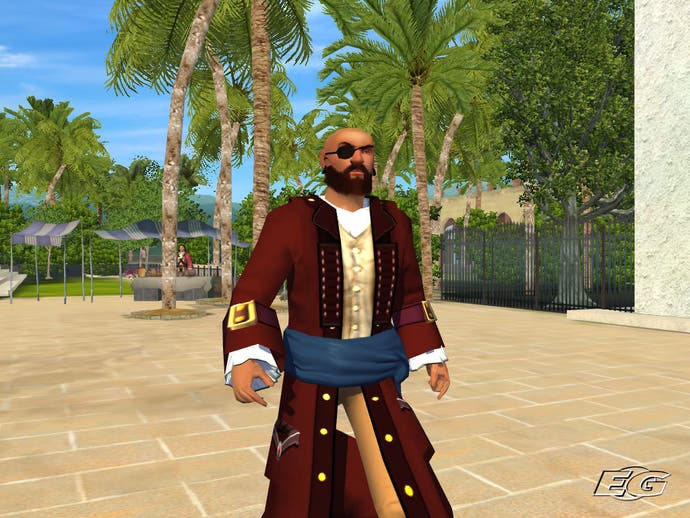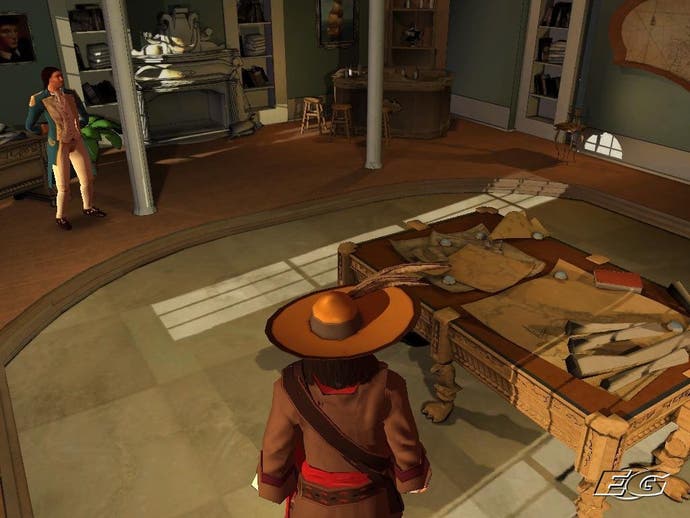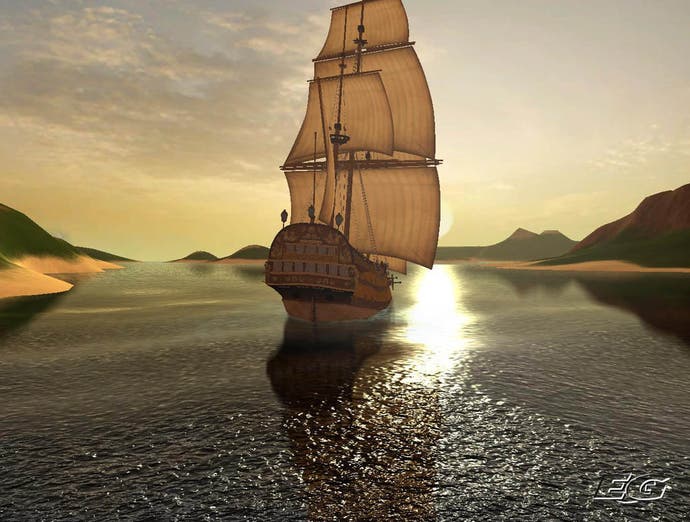Pirates of the Burning Sea
Funding terrorism and organised crime on the high seas.
There's something quite odd and unsettling about the rehabilitation of pirates as a centrepiece of popular culture. The extensive rap sheet of the profession doesn't exactly endear itself, after all - it was, after all, mostly devoted to thieving, burning, raping, murdering, pillaging, more raping, drowning, slaughtering, and bad doses of scurvy. Piracy was vicious and brutal; its signature, comedic aspects, like walking the plank, are entirely the invention of fiction. Disemboweling, crucifixion and the likes were more common ways to meet your end at the hands of Johnny Depp's late seventeenth century role models.
Yet now, internet forums teem with idiots arguing over whether pirates or ninjas would win in a fight. Keira Knightley fawns all over highly unlikely buccaneer Orlando Bloom in Hollywood blockbusters; children's parties the land over are full of five-year-olds wearing Jolly Roger hats and eyepatches, and beating one another furiously with plastic swords as the edge starts to come off their screaming sugar highs.
Just as yesterday's warfare is tomorrow's Olympic sport, the passage of time makes yesterday's brutal criminals into today's romantic heroes. We're eagerly awaiting the logical conclusion to this in a few decades' time - schoolground arguments over whether paedophiles or terrorists would win in a fight will be simply wonderful, not to mention films where pouting starlets fall for heroic suicide bombers while the stuffy old authorities try to stop them from blowing up trains. [Are we sure this is right? - Ed]
Yo Ho Ho

Regardless of the strange morality involved, Pirates of the Burning Sea is the latest slice of popular culture to take inspiration from the corsairs who roamed the Caribbean Sea during the late 1600s and early 1700s - or, at least, from their swashbuckling, cinematic descendants. It's also the latest massively multiplayer game to squeeze into this increasingly crowded market, which means that it'll take more than a few references to Pieces of Eight and walking the plank to convince wary landlubbers to hop on board.
The game is presently in "pre-launch", which means that it's technically finished with its beta phase and gradually filling up with paying customers who have pre-ordered the game. Everyone else gets to start walking the decks tomorrow, 22nd January. Despite the end of the beta, however, we're still seeing some major changes being put in place in the game - just recently, there was a fairly large re-jig of the progression system for low-level players - so it's clear that not everything is final, as such.
The first thing we look for in any MMOG, frankly, is innovation - an important factor in any genre, but even more so in MMOGs given that World of Warcraft has already perfected the "unoriginal but polished to a shine" approach. On this front, at least, Pirates of the Burning Sea delivers in spades.

Partially, it's the setting. Unlike most MMOGs, the game is set right here on Earth, with the action focused on the Caribbean area in the seventeenth century - which lends it a visual and narrative style that's unique among games of this type. Moreover, it means that there are no fantastic creatures to battle; you fight against humans and their ships, not against dragons or orcs. It says a lot about the MMOG genre and the conventions it has built for itself that this feels like a brave move.
Even more important than the setting, however, are the various systems you'll interact with as you progress through the game - most of which are fresh, innovative, and totally unlike anything else that we've seen in a massively multiplayer game. From the naval combat which plays a key role in the game to the intricate yet accessible player economy, the game is filled with radical new ideas - but rather than over-reaching in its ambition, almost everything here actually works.
Talk Like A Pirate
Naval combat, for instance, is an extremely important part of the game. You get your first ship within minutes of starting off, and are engaged in your first naval battle almost immediately afterwards - so right from the outset, it's clear that this isn't a conventional MMOG battle. Controlling your ship in third-person perspective, you need to manoeuvre around your enemy in order to get into position to deliver cannon broadsides into their hulls - and only once their armoured hulls are destroyed can you start dealing damage directly to the heart of the ship.

The level of control you have over this kind of battle, and the number of factors involved, only starts to become clear after you've fought through a few of them. You can instruct your crew to focus on specific aspects of running the ship - reloading cannons faster at the expense of manoeuvring speed, for example - or to load special types of shot, such as chain shot which damages masts and rigging.
When moving, you need to take account of the wind (it's not entirely realistic in this respect, presumably because forcing players to tack upwind would be a bit overbearing) and the shape of the coast around you. Your ship, meanwhile, can be customised with a vast array of options in terms of rigging, armaments and the likes, all of which have a subtle but important effect on battles.
It's different and it's exciting, although we suspect that some players will be deeply put off by the somewhat slow nature of combat. Matters resolve themselves quickly when you get into an advantageous position and can launch a broadside into your foe's hull - but the careful manoeuvring required to get into that position can take several minutes when you're up against an evenly matched enemy.



.png?width=291&height=164&fit=crop&quality=80&format=jpg&auto=webp)




.jpg?width=291&height=164&fit=crop&quality=80&format=jpg&auto=webp)
